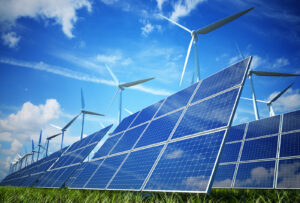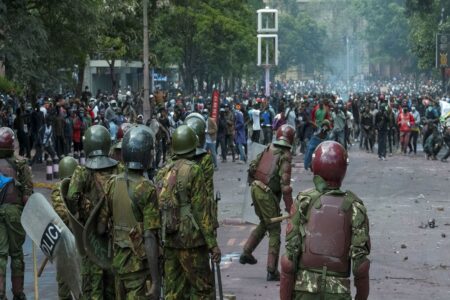- Kenya’s economy is expected to expand the fastest in 2022 despite this being an electioneering year
- This is a much better performance than any other since the onset of the multiparty system 20 years ago
- It is estimated and expected that the economy will grow by 5.4 per cent by the time we get to September 2022
Kenya Economy
A projection of global economists has suggested that Kenya’s economy is expected to expand the fastest in this electioneering year despite not knowing who will win the 2022 election in Kenya.
This growth is more than any other since the onset of the multiparty system 20 years ago shrugging off politics in Kenya 2022.
This increase, they say is supported by increased expenditure and also the need for more human resources to run campaigns with the introduction of features like social media campaigns which also is a way of collecting revenue.
Dissolution of parliament in Kenya before election 2022 is what will give full throttle to the electioneering period.
As measured by gross domestic product (GDP), 14 leading financial institutions among them world-leading banks and other consultancies charged with making the projections, it is estimated and expected that the economy would grow by 5.4 per cent by the time we get to September 2022, a month after the general elections.
Read: African countries will lose up to US$500 billion per year by 2050
In his report on Kenya, a Barcelona Based Economist analyst who had sampled and compiled data between January 18 to 23, attributed the steady growth of the economy to a steady and sustained rise in capital spending as well as household spending citing that this was a healthy growth rate.
Several Kenya election 2022 opinion polls have not narrowed down on a definitive winner but the report has projected the economy will receive a boost from solid government consumption and a large accommodating monetary stance.

Although according to analysts, this time last the GDP had grown by 8 per cent which implies that it’s a bit slower this year, still yet this is the fastest it has ever been projected to grow in all elections we have gone to since 1988 with the adoption of the multiparty democracy.
According to the forecast report, some of the economists who provided analysis of the growth come from moody analytics who projected the growth of 8.6 per cent closely followed by the UK’s capital Economics at 6.5 per cent, JP Morgan from the U.S projected it at 6.3 per cent, Julius Baer from Switzerland projections stood at 5. (Provigil) 5 per cent while 5.3 per cent was projected by Euro monitor International Headquarters London.
Joining them in posting the projection report was American Investment Bank Goldman Sachs at 5.2 per cent, 5.1 per cent from brokerage house Citigroup global markets in New York and closing the 5 per cent and above projection was HSBC from the UK, Fitch Solutions and Fitch ratings sees Kenya’s GDP to rise by 5 per cent this year.
However, there are some economists who feel that the GDP cannot surpass the 5 per cent growth and rated the projections below; Frontier View put the growth at 4.9 per cent followed by Slandered Chattered Bank feels the projection fits at 4.8 per cent, Economists Intelligence Unit, and then the Oxford Economics at 4.3 per cent.
According to a report written by analysts at Capital Economics in January, policies provided by the authorities who provide support for citizens during the electioneering year also contribute to the growth of the economy as more businesses and services crop up to aid in money circulation.
Read: Sharpen your investment instincts
Interestingly, compared to the Central Bank of Kenya projections of 5.9 per cent, the consensus growth outlook projections seem lower but still higher than the World Bank” projection released in January 2022 which foresee a growth of 4.7 per cent.
Elections in Kenya have always caused slow growth in Kenya’s GDP; Patrick Njoroge the CBK governor says that most firms put investment decisions on hold pending the outcome of the elections and return to normalcy citing the tensions at the last general elections.
“We have seen elections before, and actually saw double elections five years ago and another one five years earlier and we all know what they mean to our country in terms of investors and investments” Said Governor Njoroge.
Figures at the central bank show that Kenya’s GDP slowed to 3.82 per cent down from 4.21 per cent the year before in the 2017 double general elections while in the 2013 general elections, from 4.57 per cent it decelerated to 3.80 per cent.
As President Uhuru Kenyatta prepares to leave office after the August 9th, 2022 election, many candidates have registered their desire to take over from the commander in chief of the armed forces with deputy president William Ruto and former Prime Minister Raila Odinga being fronted as the front runners and both of them have committed to addressing matters of the economy if elected into office.
Calls have also been made to citizens to exercise their constitutional right of voting and thereafter to ensure that there is no post-election violence that ends up destroying infrastructure and choking the country’s economy.
Leaders have reiterated the need for the electorates to make an informed decision and elect a visionary leader who will turn the economy around.
Read: East Africa holds its ground as Africa’s fastest-growing region










